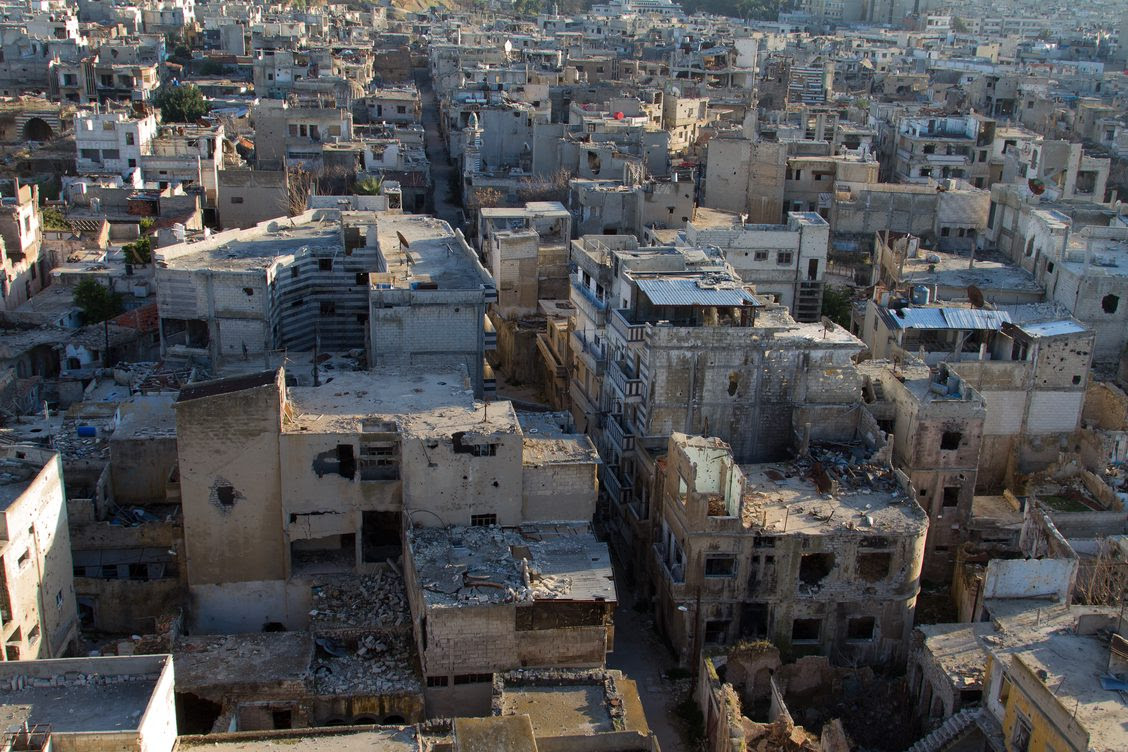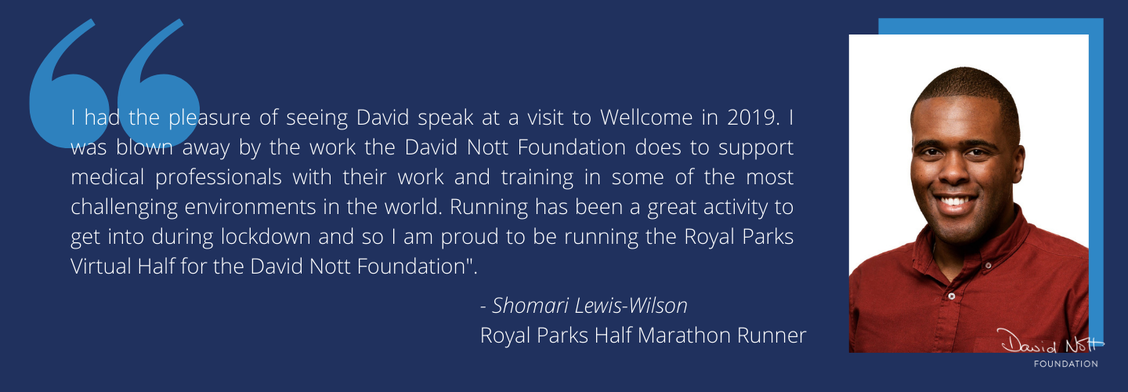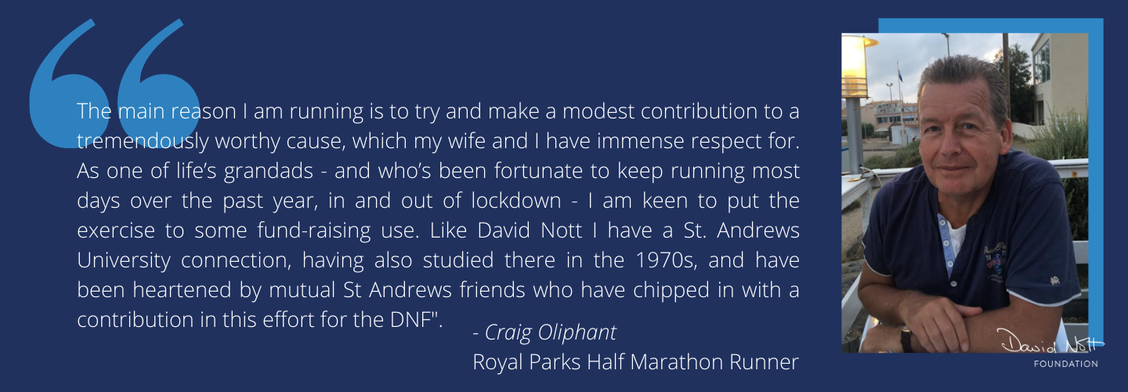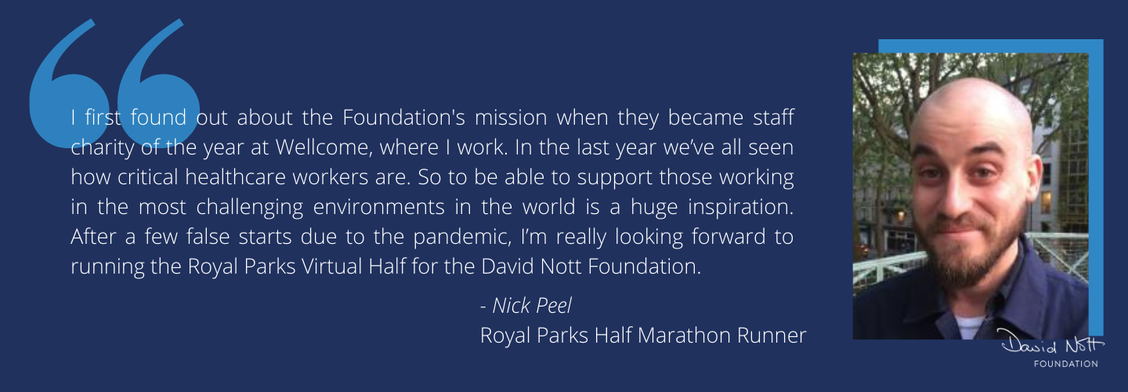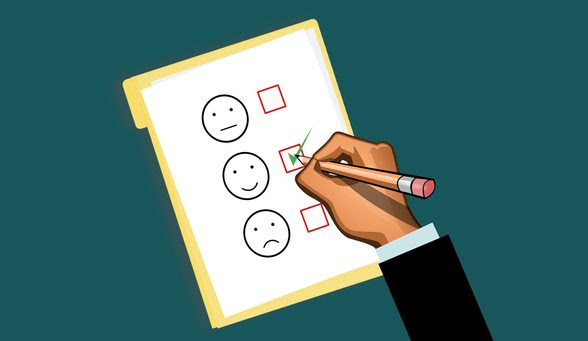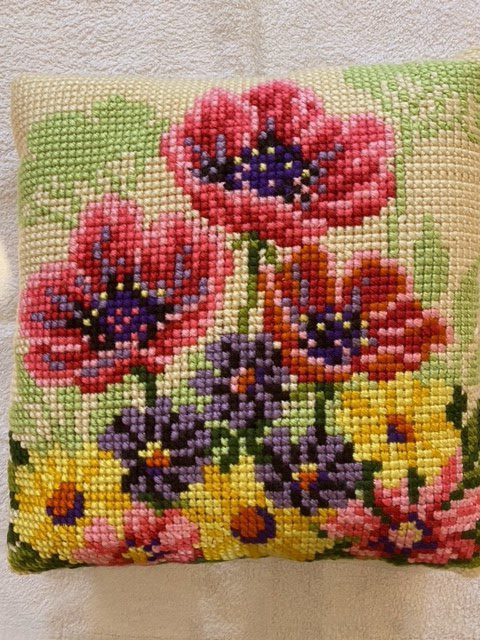Meet war doctor trainer, Dr Una Walsh
Dr Una Walsh, General Surgeon and Major Trauma Fellow at St Mary’s Hospital London, is the newest member of our faculty. Here, Dr Walsh shares her experience of our latest course in Iraq, where she was responsible for teaching abdominal and paediatric trauma.
Joining the Foundation
I first met Professor Nott in 2016, when I worked as his Registrar at Chelsea and Westminster Hospital. Since then, I am privileged to call him my mentor. It quickly became very clear to me that our thoughts were aligned on global health and inequalities, and I was keen to get involved and help in whatever way I could.
I was quite junior at the time - a 3rd year Registrar - but I knew if I continued my training, stuck with it and pushed hard, I could use the skills and operative knowledge I gained to join the Foundation and further their aims abroad.
This required a considered rethink on my career path and after discussion with Professor Nott and deanery tutors, I made the decision to switch training from breast to colorectal surgery and create a path towards emergency and trauma surgery. This also laid the groundwork for a humanitarian-focused career. I have since completed general surgery training, joined the Foundation’s faculty and currently work as a Major Trauma Fellow alongside Professor Nott at St Mary’s Hospital London.
A pull to help those in need
My first experience of humanitarian work was with Sir Magdi Yacoub’s charity, Chain of Hope, based at the Brompton in London. Through a chain of volunteer surgeons and medical doctors, Chain of Hope identifies children with congenital heart disease in urgent need of surgery not available in their own country and arranges transfer to centres in high-income countries that sponsor their surgery. They also have an active training programme, whereby teams fly out to operate or train local teams across the developing world. My role is to travel to low- and middle-income countries and provide aeromedical escort for children to sponsor centres for life saving heart surgery.
On behalf of the charity, I have retrieved children from Zambia, Haiti, Sierra Leone, and the Ivory Coast. This work is extremely rewarding working with a fantastic charity, plus I have a very lovely collage of pictures of the children I have helped, recovered after surgery. This work has also given me a wealth of experience in mission planning and the nuances of humanitarian work including navigating many and varied world airports with understandably terrified mothers and often babies in tow.
Whilst, heart-warming work it feels like a very small drop in the ocean - that's what drew me towards global health as an entity. The ability to help more than just single individuals.
At the David Nott Foundation, if you train one surgeon, the knowledge is shared with many more in local communities helping hundreds - that ethos resonates really strongly with me.
Cutting-edge teaching technologies
The latest HEST course in Erbil, Iraq, was my first course as a Faculty Trainer. It was a really lovely introduction to working with the Foundation. I led the abdominal and paediatric sections of the course. This involved both lectures and skills training.
All the training equipment, funded by our supporters, is superb. We were able to provide near-to-life simulated training through the use of purpose-made and anatomically correct tissue, including bowel arteries and veins, hearts, kidneys, windpipes and even skulls. The hearts and kidneys were my particular favourites, truly amazing and life-like.
Then Heston – the anatomical model! It’s just the cherry on top. You can demonstrate the exact movements you’d make in surgery. For example, how to mobilise the colon to get to the kidney, or more importantly the major vessels which can often represent the most challenging of traumatic injuries.
Heston also has little magnetic buttons that keep the organs in the correct anatomical positions, which allows you to simulate exactly how you would move and access body parts. It’s a tremendously clever part of his design.
Humbling stories
Most of the surgeons I trained came from Mosul, so many had experiences of the war to liberate their city from Islamic state (IS) invasion.
I admired so much the strength and courage they showed - and listening to their stories was humbling.
When Dr Troller (another faculty member) was teaching a procedure called a resuscitative thoracotomy, one of the surgeons commented during the war that they'd done ten - and only one survived. This could be down to the catastrophic injuries caused by war, making procedures like this even more challenging.
After completing the course, they were equipped with helpful strategies, giving them confidence that future outcomes will be different for patients. This is the real-world value of this innovative course.
They were a very talented, welcoming and hard-working group of individuals and I’m really looking forward to training many more like them.
We’re back where we belong
We are delighted to be back training doctors on the frontline. Our latest Hostile Environment Surgical Training (HEST) course in Erbil, Iraq, equipped 31 local healthcare professionals with skills that will serve their communities. Our Chief Executive, Elly Nott, shares her experience of the course.
Our latest course in Erbil was an incredibly humbling experience. Facilitated by our partners at Médecins Sans Frontiers-Belgium (MSF), we were able to train 31 Iraqi healthcare professionals in the surgical skills they need to manage any case they might encounter in an emergency or conflict situation.
During the course, our faculty used our cutting-edge anatomical model, Heston (pictured below), to teach a range of surgical techniques for treating traumatic injuries. Model hearts and synthetic skin helped them practice how to manage cardiac injuries and chest tube insertion. Virtual reality headsets also immersed our participants in emergency scenarios, putting their mass casualty triage and decision-making skills to the test.

A number of the participants were from Mosul, a beautiful and historic city that freed itself from the oppressive rule of Daesh in 2017. The resilience, courage and grace of the doctors was an inspiration to us all.
We are so grateful for your support of our mission. Every donation helps us deliver world-class surgical training that saves and improves the lives of those most in need.
Training of Trainers: Future-proofing the Foundation
Last weekend, the David Nott Foundation invited 24 leading surgeons to London to attend a Training of Trainers course. The aim of the course was to introduce each surgeon to the HEST Course, with the hope that many will want to travel to conflict zones with the Foundation to teach it.
The Foundation receives many requests to run HEST courses, in so many locations affected by war. By expanding our faculty, we can reach more of these places in a timely manner.

The 3-day course was held at the iconic Wellcome Collection, a monument to the health sciences in Central London. Our extant faculty, led by David Nott, took participants through the different modules that comprise the HEST course. By the end of the weekend, participants felt ready to teach the course overseas. One participant said:
"David and colleagues have lots of experience and I am in awe of what they have been able to achieve. The practical tips in management of patients in humanitarian settings are equally valuable for trainees and established consultants in this country. "
Interspersed with surgical modules was discussion of the practicalities of attending humanitarian missions:
" I found the session delivered by Mr Hakimi on the practicalities of what to expect when travelling and working in countries where HEST is being delivered to be excellent and insightful."
We were additionally delighted to welcome students from the Friends of the David Nott Foundation Societies to the course. Delegates from Manchester, Leicester and Queen's University Belfast came to get a taste of their future humanitarian careers.
Training the Trainers has allowed us to invigorate the Foundation with new and enthusiastic teaching faculty. The DNF is poised to return to in-country HEST courses future-proofed and with more courses than ever.

British Contemporary Artist's Exclusive Offer to Our Supporters
Nadia Day is a contemporary British artist based in Richmond, UK. She paints Impressionist views of nature, both local and further afield through seascapes and commissions.
“I use a brisk technique of flat brushstrokes and pallet knife work, ensuring my paintings reflect the energy and beauty of nature at their core. I love painting a big fresh sky - this is always my starting point”
After reading War Doctor she felt so moved by David’s story that she contacted us to pledge her support and donate four original paintings. Nadia’s work has been selected for national exhibitions including the Battersea Affordable Art Fair. She studied art at Kingston University and gained a BA in Drama & Theatre Arts from Birmingham University. Here is what she had to say about the collaborating with the David Nott Foundation:
“I was profoundly moved reading War Doctor. David Nott was continually taking himself away from his safe set up in the UK, to risk his life to help others. I felt compelled to do something, but helpless - my artistic skills are a world away from the medical practise, so how could they be applied?
I remember seeing Quentin Blake’s illustrations brightening up the walls of Great Ormond Street Hospital, where we often visit with my son Jasper, and the art offers a cheery brightness at a time of need.
My aim was to create pieces which inspire positive feelings of calm and contemplation. The landscape needed to be non-descript but to suggest change and travel – themes residents fleeing war torn countries must often face. I wanted to touch on the base human feelings of courage and hope, feelings required in difficult situations.
I carefully chose names to conjure up the emotions they represented to me; there is Solace, Reflection, Legacy and New Beginnings.
If you bought one of these pieces, the message is clear, you are paying for a doctor to be trained and I personally thank you so much.

Solace

Reflection

New Beginnings

Legacy
Operating and Teaching in Yemen: an Interview with David Nott
In April, David travelled to Yemen with Ammar Darwish, Mounir Hakimi and Asan Raffee to deliver both teaching and hands-on surgery in the World's worst humanitarian crisis. Below is a short interview that we conducted with him on his return.
How did this trip come together?
It came about with a telephone call from Syria Relief. Mounir Hakimi (of Syria Relief) had been in contact with several of the doctors who had been working in Marib. They were operating on a large amount of cases and they wanted help. Some of the surgeons who were there had difficult wounds or injuries presenting, and they wanted advice and teaching on how to cope with those injuries. That was how we heard about it.

The Syria Relief - DNF Team break their fast in Marib.
What did you see of the city of Marib?
It was pitch black at night when we arrived. We landed in Seiyun and it was a 6 or 7 hour drive to Marib. We arrived very early in the morning and went to a hotel local to the hospital. A few hours later, in the morning, we went to the hospital and were very much welcomed by the medical team working there.
What was the hospital like?
We had a very nice tour around. The Medical Director was extremely enthusiastic in showing us exactly what they had been able to continue to do. They had a very good blood transfusion bank, they had very good blood chemical laboratories. They had an intensive care unit, they had well-stocked theatres and they had a good array of back-up support. There were a lot of nurses on the wards.

At the time, Marib was becoming the epicentre of the civil war. Could you see that that hospital and its staff had been affected by escalating conflict within and around the City?
Yes. It was the epicentre. And it still is. The fighting is intense. Probably about 15km north of Marib. At the moment, Marib has about two million refugees and it is very densely populated. The fighting is continuing and obviously the hospital that we were in was the frontline hospital to accept all those casualties that were wounded. Both civilian and non-civilian.
We heard jets going over the top and we also heard rockets coming into Marib. You were aware that you were in a very hot war zone.
Who did you meet at the hospital?
Some were senior doctors. Some had just come in the last couple of months from Egypt to help out. There were quite junior doctors. There were those that required quite a lot of teaching and understanding of how to manage injuries. The hospital had stopped almost all of its elective surgeries. They were focusing purely on the war-wounded patients. Unfortunately those patients that had cancer problems weren’t really dealt with at this time.
Which case stands out the most in your memory?
I think the case that stood out most was after the teaching we gave the night before on gunshot wounds to the chest and abdomen. The surgeons had never done a thoracotomy before for a gunshot wound to the chest. The following night we were called back to the hospital with a surgeon who had watched our lecture and we found there was a patient who needed a thoracotomy. Because we were there, we were able to show him exactly how to do it and exactly how to extend this incision onto the abdomen and do a thoracoabdominal procedure. The patient did extremely well and thanked us a couple of days later.
We discussed a lot of reconstructive work. Most of the flaps that we discuss on our HEST course, we did in Marib. There was a lot of surgery done with a view to the surgeons being able to do that kind of surgery when we left.

Going forward, what do you think the Foundation's work in Yemen is going to look like?
I think that we will be going back to Marib, and I think we will continue to go back and support them both with teaching the DNF HEST course and perhaps this time taking our models with us as well so that we can run a course during the day or the evening and then operate as well. I think the future of the DNF is operating as well as hands-on teaching as well as the classroom for some courses. The future lies both within the operating theatre and the classroom.
I think we had developed a significant rapport with the doctors such that I heard recently that they desperately want us to go back again to show them more and more. I think that is the perfect opportunity for the DNF to show what it is worth really.
This mission epitomised what the DNF is all about. The DNF goes out to the field, it saves lots of lives as well as teaching the doctors so that they can continue to save lives. The DNF leaves a legacy.
You can read Ammar Darwish's story of the mission here.
David Nott and Ammar Darwish Return from Yemen Mission
Surgery on the Frontlines of the Yemen Civil War
Ammar Darwish's experience of operating and teaching in the world's worst humanitarian crisis.
CONTAINS GRAPHIC IMAGES OF SURGERY
"The Yemeni medical staff in Marib sent a call for assistance as they have been extremely overwhelmed with injured patients from the war"
David and Ammar were called up by Syria Relief to assist the medical staff in the city of Marib, who were facing an unprecedented number of patients injured in the intensifying conflict of which the city had become an epicentre. The team left London excited to get back to their roots, operating in areas of conflict and austere environments.The team left London ready to begin the long journey to Yemen, where they would meet with Syria Relief - a charity that provides support to Syrians needing medical intervention, food, education and other necessities. The team arrived at Seiyun airport in Yemen, and travelled through the night to reach the hospital in Marib that was to be their home for the next two weeks.

Marib is just 10 or 15 kilometres from the front-line of fighting, a grim reality that was ever-present as the team arrived and changed immediately into their theatre clothes.
After meeting the local medical team David, Ammar, Mounir and Dr Asan Rafee had a quick tour and then immediately started working. For the patients at this trauma centre, there was no time to lose.
![[object Object]](https://media.shorthand.com/media/organisations/Sn3h4o86N0/HrtyxtQmDd/whatsapp-image-2021-05-21-at-17-11-13-1600x1200.jpeg)
"This is one of the first operations that we dealt with. A gunshot wound to the abdomen in a young man who was left in a state of shock. He bled a lot and we had to do a trauma laparotomy and damage control surgery. We operated on him immediately.
David is just behind me in the background. He is getting ready to go to another theatre to deal with another case."



"Again, another abdominal injury to a patient. We are doing an emergency trauma laparotomy and treating the patient. David, Myself and one of the local surgeons".
Although the local surgeons are very experienced, they have not dealt with many of these cases before. David and Ammar spent many hours training the local surgeons, imparting their years of knowledge gained through war surgery and taking them through complex operations.
They opened the chest to stop the bleeding, performed damage control surgery and took the patient into intensive care. All the while, David and Ammar were teaching their local counterpart how to perform this procedure, and to deal with these injuries.
After 7 days, the patient was discharged. His life had been saved.

"This is the team after a long day of operating, dealing with different kinds of injuries. We sat down, I think it was almost 8 O'clock in the evening to break our fast after a long day of operating - I think 12 or 13 hours of operating".

"When everything had calmed down, especially at night, we used to give teachings. David gave lectures on different kinds of injuries and how to manage those injuries. David did the main teaching, and Mounir and I helped to translate".
The team did around 45 operations in Yemen. This ranged from life-saving trauma surgeries to complex reconstructive surgeries.
They returned home to the UK ready to deploy again as soon as possible, to wherever they are needed.

The mission itself was organised and conducted by Syria Relief. Head to their website (https://syriarelief.org.uk/about-us/) to learn more about them.
April 2021 Newsletter: 10 Years of Conflict in Syria

10 Years of Conflict in Syria
Welcome to the David Nott Foundation’s April update. To those observing, we hope that you had a restful Easter and were able to come together with loved ones to celebrate. Today, we at the Foundation have been profoundly saddened by the new that His Royal Highness The Prince Philip has passed away. We wish to express our deepest condolences to Her Majesty The Queen, and the Royal Family. It has now been ten years since the civil war erupted in Syria. The price paid over the last terrible decade by Syrian civilians is incalculable, and millions still reside in vulnerable, crowded camps. Children have lost schools, friends and family members. So many thousands have lost their homes, businesses and loved ones. Hospitals, deliberately targeted by the Syrian regime now struggle to cope with the COVID-19 pandemic. As a show of solidarity with the Syrian people, the David Nott Foundation dedicated our social media accounts to small NGOs, individuals, civilians, humanitarians and journalists who have lived experience of the civil war. We hoped to provide a platform through which to amplify these voices. We encourage you to look back through our Tweets and Re-Tweets (@NottFoundation) to read first-hand accounts of the atrocities and reflect on the profound loss that we all feel after ten years of conflict. The David Nott Foundation has taken our HEST course to Syrian surgeons before, and plans to again soon. You can view an interactive map of where we have taken our training course by visiting the ‘Overseas Course’ section of our website. Good luck to our RPHM RunnersWhile we’re on the subject of challenge running events, the Foundation would like to wish good luck to our Royal Parks Virtual Half Marathon runners for the 11th of April. We asked some of those competing to raise money for the DNF what inspired them to do so:
|
||||||||||||||||||||||||
March 2021 Newsletter
What is it really like to be a doctor in a war zone? |
 |
|
Welcome to the David Nott Foundation’s February update. The pandemic has given us the time to reflect on the amazing doctors that we have trained on past HEST courses. Each one of them has a story to tell. Some go to work every day while bullets tear through the walls of their operating theatres; some fight to save lives while armed groups fight each other in the streets. In this booklet, we highlight eight such doctors and give them the platform they deserve. READ: ‘War Doctor Heroes’ photobooklet on the DNF website with foreword from Elly Nott. |
|
||||||||||||||||||||||||||||||
|
Last year, the staff of Wellcome chose the David Nott Foundation as their charity of the year for 2020/21. Since then, they have consistently given outstanding effort to the cause, from completing challenge events to auctioning lunches with Director Sir Jeremy Farrar. To each and every member of Wellcome’s staff: thank you. Your effort will reverberate around the world as we train more war doctors, and they save more lives. For small charities like the David Nott Foundation, every donation can have a disproportionately large impact. Every sponsored run, bake sale or event goes a long way to delivering vital surgical training in locations that need it. |
||||||||||||||||||||||||||||||
David Nott Wins Human Rights Award
On the 2nd of February, David Nott was awarded the Hans Albrecht Foundation’s Human Rights Award for 2021. The award was presented by Lord Daniel Finkelstein.
The Hans Albrecht Foundation’s mission is to advance human rights in the UK, particularly with regards to children, equalities, those with disabilities and refugees. The Award honours individuals or organisations that have made outstanding contributions to the field of human rights. Read more about the Hans Albrecht Foundation on their website.
|
|||||||||||||||||||||||||||||
|
As a result of our membership, you will be able to receive full tax exemption status. To donate from the USA, please go to the new dedicated section of our website. |
|||||||||||||||||||||||||||||
|
|||||||||||||||||||||||||||||
|
Earlier this month, FDNF Manchester hosted a fantastic conference entitled: ‘MDT On the Front Line’. This was a stimulating day of speeches and workshops led by some of the field’s most distinguished practitioners. Alongside David Nott was our own Jon Barden, leading a workshop on humanitarian operations delivery, and DNF Faculty colleague Ammar Darwish who also led a workshop. |
|||||||||||||||||||||||||||||
Make Someone’s Day This EasterEaster is a perfect time to reach out to loved ones and friends. In this time of social distancing, a handwritten card feels like an authentic connection in a way that an email cannot. Make someone's day with this beautiful card by Peter Suart, or choose from our extensive range on our website - proceeds from which will benefit the David Nott Foundation. |
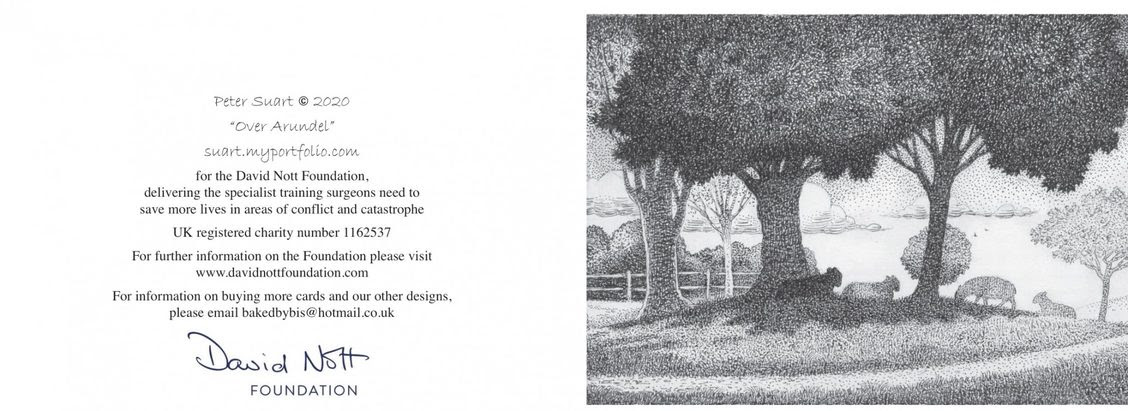 |
Wellcome Staff Charity of the Year
Our partnership with Wellcome will have a profound and lasting impact on both war doctors and their patients in conflict zones. Today we say thank you and recognise the huge and very real impact that Wellcome’s generosity will have on our work.
Last year, the staff of Wellcome chose the David Nott Foundation as their charity of the year for 2020/21. Since then, they have consistently given outstanding effort to the cause, from completing challenge events to auctioning lunches with Director Sir Jeremy Farrar. Particular congratulations go to Mala Gaonkar for winning the latter - we can only imagine how fascinating that conversation will be! Mala is a philanthropist and leader in the field of public health, and we are proud to be associated with her as a result of Wellcome's auction.
To each and every member of Wellcome’s staff: thank you. Your effort will reverberate around the world as we train more war doctors, and they save more lives.
For small charities like the David Nott Foundation, every donation can have a disproportionately large impact. Every sponsored run, bake sale or ticket sale goes a long way to delivering vital surgical training in locations that need it.







